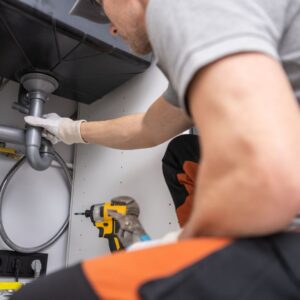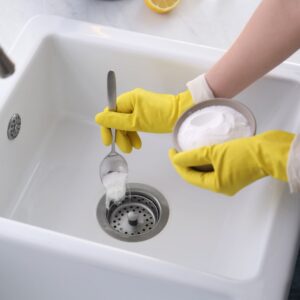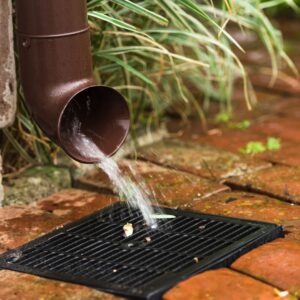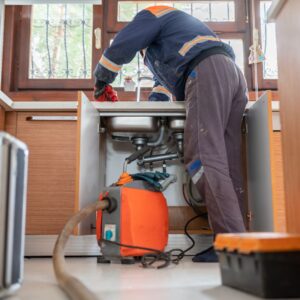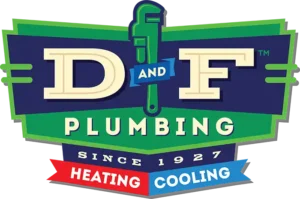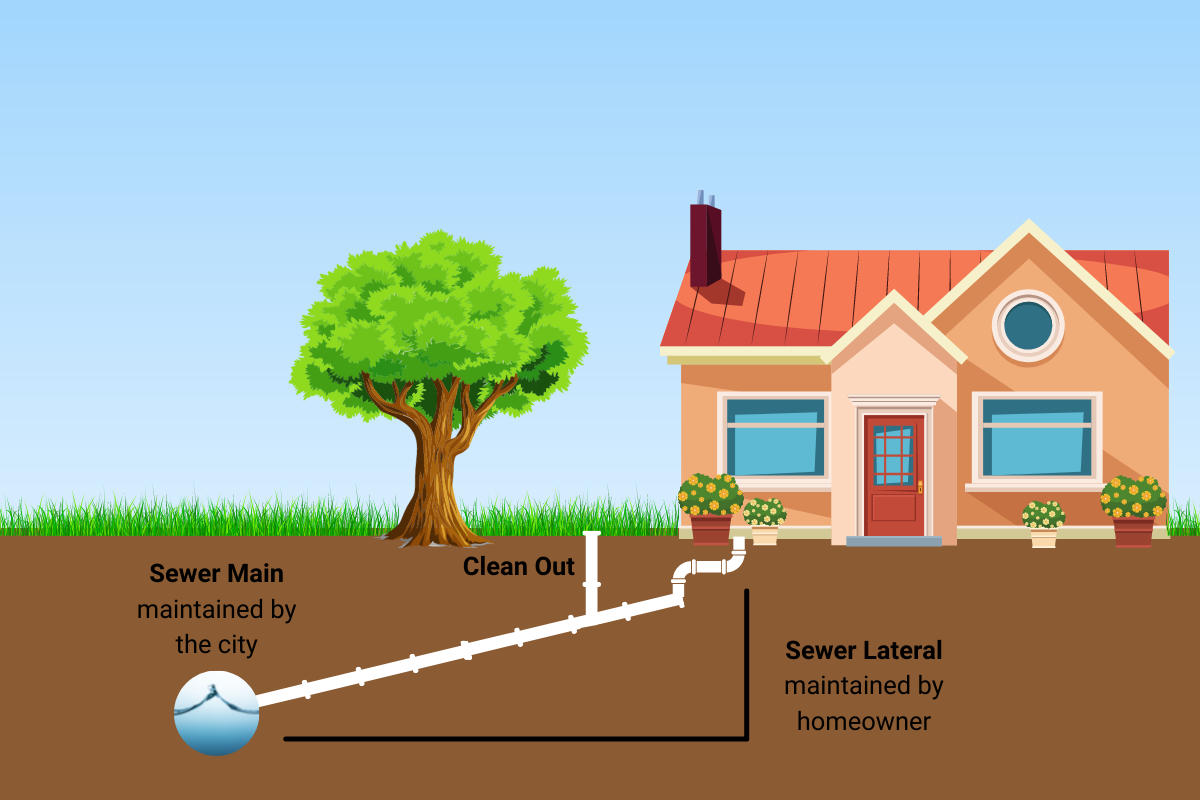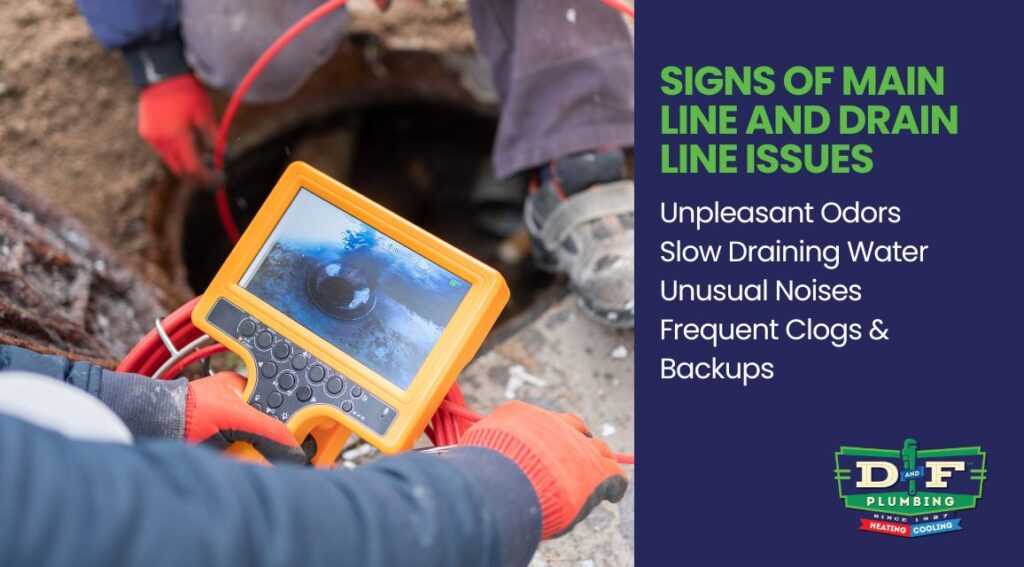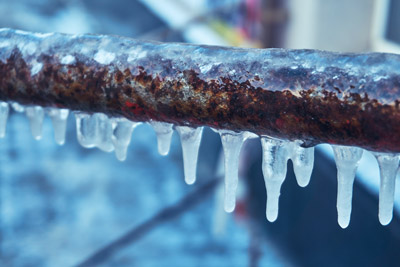Unless you’re a plumber, it’s easy to confuse main lines and drain lines. Plumbers get these questions all of the time so we thought we’d finally settle this. Keep reading to finally learn the difference of a main line and drain line, including the roles they play in your home.
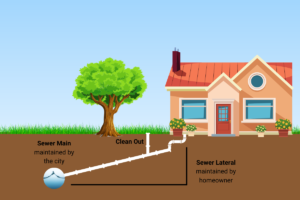
What is a Main Line?
To put it simply, your main line is your sewer line. It’s a line located underground that carries all wastewater from your home to a municipal connection or septic tank, not just toilet water.
Here is some additional information about your main line.
- In addition to drain line clogs, another big threat to your main line is tree roots. If you know where your main line is located, you can strategically plant trees in areas that won’t damage your main line.
- You’ll want to know where your cleanout is located in case it suffers a clog.
- If you’re experiencing drain clogs at the lowest point in your home, you likely have a main line clog.
- If there’s sewage coming out, there’s most likely a main line clog.
- If you hear gurgling noises in another part of the home when using water, you could have a main line issue.
What is a Drain Line?
Drain lines are lines located inside of your home that are connected to your plumbing fixtures such as your toilets, sinks, and showers. They don’t lead directly to your sewer system or septic tank, but they dump into the main line. When you’re having an issue with one drain line, you can generally still use the plumbing everywhere else in the home because they aren’t connected.
Understanding your Main Line and Your Drain Line
Knowing the difference between your main line and your drain line is important because they’re two entirely different things with different fixes and costs. Generally, a main line clog is going to require a professional plumber and involves more steps.
[embedyt] https://www.youtube.com/watch?v=8jxRn-T_LCs[/embedyt]
Why is Main Line and Drain Line Maintenance Important?
Every homeowner in the Portland and Vancouver areas knows the importance of maintaining their homes, but often, the hidden systems like main line plumbing and drain lines are overlooked. These systems are the unsung heroes of your home, quietly and efficiently removing wastewater and ensuring a hygienic environment. But why is their maintenance so crucial?
Prevention is Cheaper than Cure
When it comes to main plumbing line and drain line plumbing, a stitch in time truly does save nine. Regular checks and maintenance by a main line plumber can spot potential issues before they escalate. Neglecting this can lead to main line drain clogs or even damage to the sewer main line. The cost of addressing these issues after they’ve become severe is significantly higher than regular upkeep. Think of it as an investment in your home’s future and your peace of mind.
Protecting Your Home from Water Damage
The main drain line in a house and the drain lines in a house play a pivotal role in directing wastewater away from your home. A clogged plumbing main drain or a backed-up main sewage line can lead to water pooling in unwanted areas. This doesn’t just mean a mess to clean up; it can lead to structural damage, mold growth, and other health hazards. For those who’ve experienced the aftermath of a burst main sewer pipe or an overflowing sewer mainline, they can attest to the importance of preemptive maintenance.
Ensuring a Healthy Living Environment
Ask yourself, “What is the main drain in a house for?” or “What is a sewer main’s purpose?” The answer is simple: to ensure that wastewater, which includes everything from used bathwater to sewage, is efficiently and safely removed from your home. A malfunctioning mainline sewer or water drain line can lead to stagnant water, which becomes a breeding ground for bacteria and pests. This not only poses a health risk but can also lead to unpleasant odors permeating your home.
While the intricacies of main plumbing and drain lines might seem confusing, understanding their importance and ensuring their regular maintenance is crucial. It’s not just about avoiding costly repairs; it’s about ensuring the longevity of your home and the health and safety of its inhabitants. While we know you’re probably not always thinking about “What is a sewer line, and why should I care?”, remember that it’s the silent guardian of your home’s hygiene and comfort. So give it some consideration once in a while!
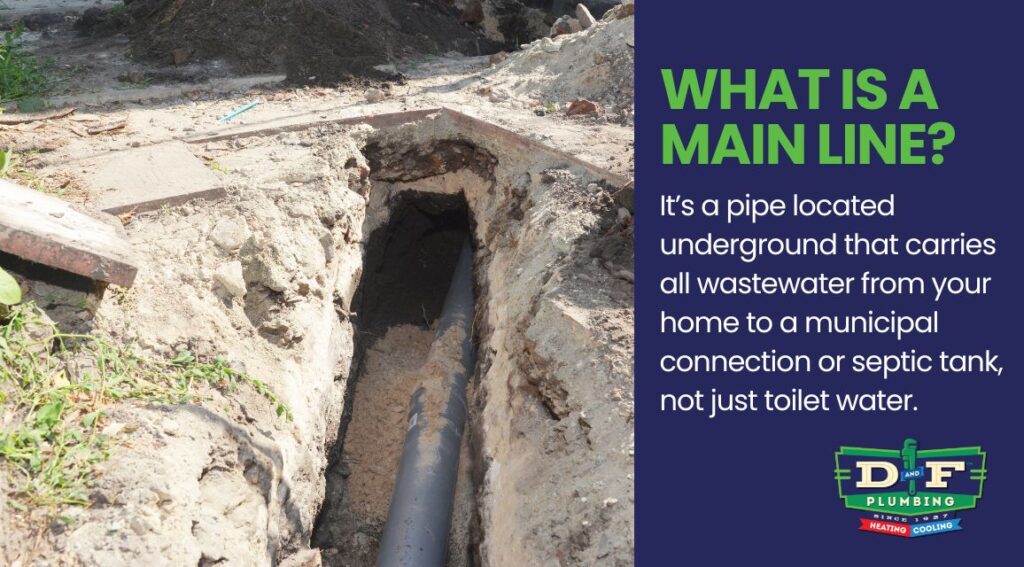
Sewer Line Cleaning Experts
Great, now you’re just a bit more educated on your plumbing terminology than you were before reading this article! Ever consider a plumbing career? 😉
Anyway, if you’re experiencing any issues with your drains or main line, let D&F Plumbing, Heating and Cooling help! We have the experience and knowledge to help with main line and sewer line repairs quickly. Plus we’re available for plumbing emergencies! Contact our friendly team today!
